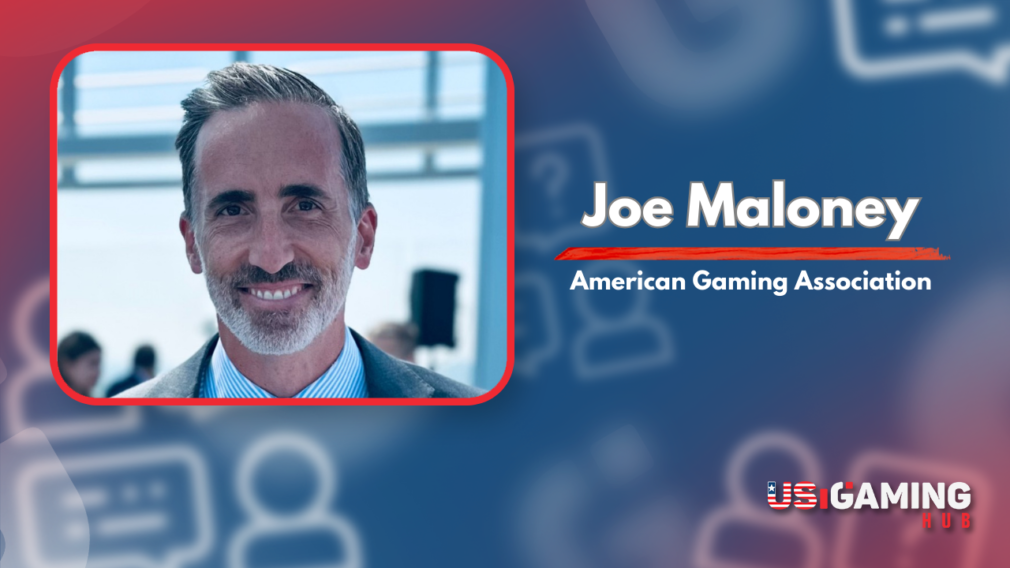“Commercial operators have a responsibility to protect their customers”
In a conversation with Joe Maloney, Senior Vice President of Strategic Communications at the American Gaming Association, we explore the AGA’s efforts to ensure player protection in both traditional and digital gaming environments.

What role does the American Gaming Association play in promoting responsible gambling among players in the U.S. market, and how is this role evolving with the rapid growth of the digital market?
The AGA has long prioritized responsible gambling, embedding it into the DNA of the legal, regulated gaming industry. As our industry expands, the AGA’s role is also expanding to meet the challenges and opportunities that come with new platforms and technologies. Initiatives like our Have A Game Plan. Bet Responsibly. campaign and Responsible Gaming Education Month (RGEM) aim to educate consumers about responsible gambling practices across gaming environments.
Our industry’s advances in technology allow for real-time monitoring, responsible gaming prompts, and the ability to set deposit and time limits. The AGA continues to convene industry stakeholders – working alongside policymakers and regulators – to ensure that responsible gaming remains a central focus as our industry evolves.
What is the significance of initiatives like those undertaken by MGM Resorts and BetMGM during Responsible Gaming Education Month? What responsibility do commercial operators have in this regard?
Responsible Gaming Education Month underscores the critical role that legal operators play in promoting responsible gambling. Initiatives by AGA member companies are significant because they demonstrate a proactive industry-wide commitment to educating both consumers and employees. Responsible gaming is not just a regulatory requirement; it’s a business obligation that drives the sustainability of the industry.
Operators are providing players with the tools and information they need to gamble responsibly—whether it’s through educational campaigns, offering self-exclusion options, or creating awareness around setting limits. Commercial operators have a responsibility to protect their customers, and these initiatives reflect the gaming industry’s leadership in this space, as well as its continuous investment in player protection.
In your opinion, do the current regulations successfully keep up with the rapid market development and adapt to the changing landscape?
The gaming industry is seeing rapid advancements, including digital payments, mobile gaming, and new product offerings. Regulated markets demand flexibility to encourage innovation and growth while ensuring consumer protections and enforcement against illegal actors preferring to stay in the shadows. The AGA is committed to working with regulators to promote regulatory frameworks that balance growth and consumer safety.
What do you think is currently the biggest challenge facing the industry in ensuring safe and responsible gambling for players?
One of the biggest challenges is the continued prevalence of the illegal market. Offshore websites and unregulated operators pose a significant threat to consumer safety, as they don’t offer the same responsible gambling approaches and other consumer protection policies.
These illegal platforms often target vulnerable populations, lack age verification, and provide no tools for responsible play, which undermines the efforts of the legal market to protect players. The AGA is focused on stamping out these illegal operators while promoting education and tools for responsible gambling across the legal market to safeguard consumers.
How effective and important are initiatives like Responsible Gaming Education Month in promoting responsible gambling?
Initiatives like Responsible Gaming Education Month are crucial in promoting responsible gambling and highly effective – as demonstrated in recent AGA research. They provide a dedicated time for the industry to raise awareness and reinforce the importance of responsible gaming practices.
These initiatives help educate players about tools like self-exclusion programs, setting deposit limits, and understanding the risks of gambling. They also highlight the industry’s commitment to continuous investment in responsible gambling programs and services. By engaging regulators, operators, and players, Responsible Gaming Education Month fosters a culture of responsibility that benefits both the industry and its customers.
Recommended
